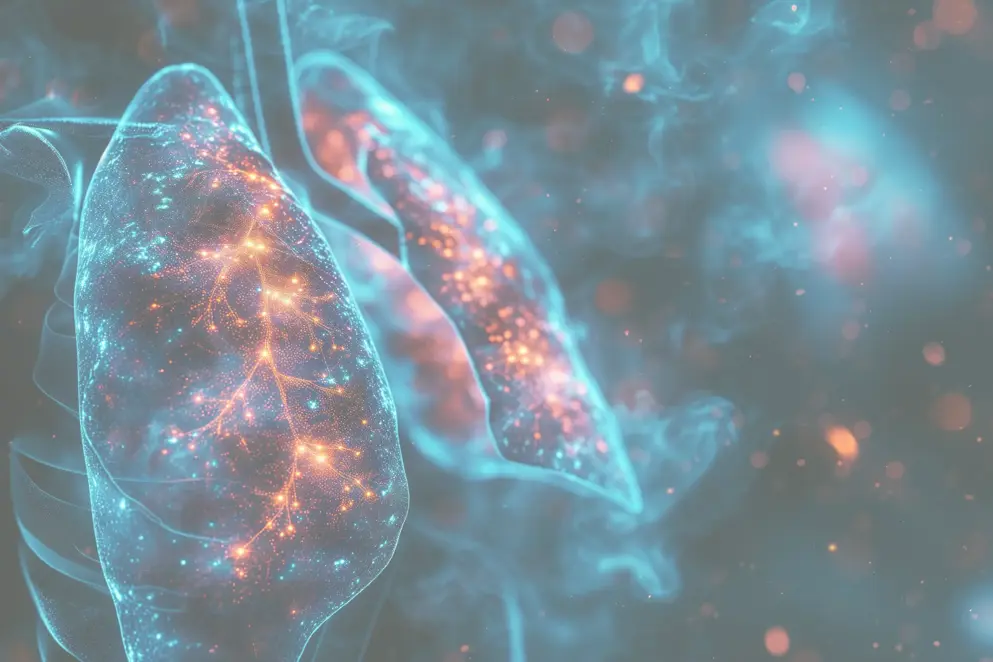
Osimertinib for EGFR-mutated NSCLC – LAURA trial
LAURA clinical trial takeaways
- Osimertinib after chemoradiotherapy showed a statistically significant improvement in progression free-survival (PFS) for EGFR-mutated unresectable stage 3 non-small cell lung cancer (NSCLC)
- There were no unexpected safety signals
Why was LAURA conducted?
For patients with unresectable stage 3 NSCLC who do not show progression, durvalumab is standard of care following chemoradiotherapy. However, the phase 3 PACIFIC trial did not demonstrate a significant difference in PFS between durvalumab (n=24) and placebo (n=11) for patients with EGFR-mutations (HR, 0.91; 95% CI, 0.39–2.13).1 No targeted treatments are approved for patients with EGFR-mutated unresectable stage 3 NSCLC.
At the 2024 American Society of Clinical Oncology Annual Meeting (ASCO 2024), chief investigator Dr Suresh S Ramalingam (Winship Cancer Institute of Emory University, Atlanta, Georgia, USA), presented outcome data from the placebo-controlled phase 3 LAURA trial, which investigated the efficacy and safety of osimertinib, a third-generation central nervous system (CNS)-active EGFR-tyrosine kinase inhibitor, for unresectable stage 3 EGFR-mutated NSCLC without progression after chemoradiotherapy.2,3
LAURA
Methods
- Primary endpoint: blinded independent central review (BICR)-assessed PFS per RECIST 1.1 criteria
- Secondary end points: overall survival, CNS PFS, safety
Patients were randomly assigned 2:1 to receive 80 mg of oral osimertinib or placebo once per day. Treatment continued until participants met BICR progression, toxicity, or other discontinuation criteria.
For assessing tumour progression, chest computed tomography / magnetic resonance imaging (MRI) and brain MRI were conducted at baseline, then once every 8 weeks until week 48, then once every 12 weeks until BICR-confirmed progression.
What were the results?
The median age of the patients was 62 years (range, 36–84 years) in the osimertinib group and 64 years (range, 37–83 years) in the placebo group. Most patients were male (58–63%), never smoked (67–71%), had stage 3B NSCLC (47–52%), EGFR exon 19 deletions (52–59%), and received concurrent chemoradiotherapy (85–92%).
Responses to prior chemoradiotherapy included complete response (osimertinib, 3%; placebo, 4%), partial response (47%; 37%), stable disease (43%; 51%), and not evaluable (8%; 8%).
PFS was 39.1 months for osimertinib versus 5.6 months for placebo (HR, 0.16; 95% CI, 0.10–0.24; P<0.001) and was consistent across predefined subgroups
- The 12- and 24-month PFS for osimertinib was 74% and 65%, versus 22% and 13% for placebo
- Interim median overall survival (20% maturity) was 54.0 months (95% CI, 46.5–NC) for osimertinib versus not reached (95% CI, 42.1–NC) for placebo (HR, 0.81; 95% CI, 0.42–1.56; P=0.530)
- Grade ≥3 adverse events (AE) were experienced by 35% (osimertinib) vs 12% (placebo); serious AEs were experienced by 38% (osimertinib) versus 15% (placebo)
- Radiation pneumonitis AEs: 48% for osimertinib versus 38% for placebo (majority grade ½)
- AEs leading to discontinuation were reported in 13% (osimertinib) versus 5% (placebo)
Patients in the osimertinib group had an objective response rate of 57% (95% CI, 49–66%) compared with 33% (95% CI, 22–45%) for placebo. The disease control rate was 89% (95% CI, 83–94%) and 79% (95% CI, 68–88%), respectively. Median duration of response was 36.9 months (95% CI, 30.1–NC) for osimertinib; 6.5 months (95% CI, 3.6–8.3) for placebo.
Implications
Ramalingam noted that EGFR testing is now critical for stage 3 NSCLC to ensure beneficial outcomes for patients with EGFR-mutated NSCLC. Based on LAURA, Ramalingam predicted that
…osimertinib will become the new standard of care for patients with unresectable stage 3 EGFR-mutated NSCLC who have not progressed after definitive chemoradiotherapy
- Dr Suresh S Ramalingam
Read: Supportive care in oncology Learning Zone
References
- NCT02125461, 2023. Brief report: Durvalumab after chemoradiotherapy in unresectable stage III EGFR-mutant NSCLC: A post hoc subgroup analysis from PACIFIC. https://dx.doi.org/10.1016/j.jtho.2023.02.009
- NCT01714908, 2021. Erlotinib versus etoposide/cisplatin with radiation therapy in unresectable stage III epidermal growth factor receptor mutation-positive non-small cell lung cancer: A multicenter, randomized, open-label, phase 2 trial. https://dx.doi.org/10.1016/j.ijrobp.2020.11.026
- NCT03521154, 2024. Osimertinib after chemoradiotherapy in stage III EGFR-mutated NSCLC. https://www.doi.org/10.1056/NEJMoa2402614
